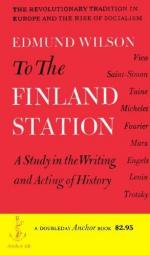
|
| Name: _________________________ | Period: ___________________ |
This test consists of 15 multiple choice questions and 5 short answer questions.
Multiple Choice Questions
1. How did Marx and Engels characterize capitalism?
(a) As the modern evil.
(b) As the perfect system for expressing human creativity.
(c) As evidence of man's inhumanity to man.
(d) As a stage on the way toward Communism.
2. Marx began to work with Proudhon, who had written _____________.
(a) A series of essays on capital.
(b) Political prophecies.
(c) A book treating property as a form of theft.
(d) Newspaper articles on the working poor.
3. How did Trotsky try to influence the relationship between the Mensheviks and the Bolsheviks?
(a) He tried to help the Bolsheviks incorporate the Mensheviks.
(b) He tried to get them both to accept Lenin's leadership.
(c) He tried to reconcile them.
(d) He played them against each other.
4. What kind of approach toward the study of economics did Marx take?
(a) Scientific.
(b) Religious.
(c) Literary.
(d) Pragmatic.
5. According to Edmund Wilson, how did Marx and Engels see history?
(a) As a flight from original sin.
(b) As a series of oppositions between thesis and anti-thesis.
(c) As a progression toward human liberty.
(d) As a fulfillment of ancient prophecies.
6. How does Edmund Wilson characterize Marx's view of Das Kapital?
(a) He says that Marx saw it as a rebellion against his parents' culture.
(b) He says that Marx saw it as a work of art.
(c) He says that Marx saw it as monument to workers' sufferings.
(d) He says that Marx saw it as a new testament in Christian religion.
7. What did Engels see as a sign of the workers' poor working conditions?
(a) Their poverty.
(b) Their religiousness.
(c) Their lack of gaiety.
(d) Their productivity.
8. What industrial facility did Engels grow up across the river from?
(a) A bottling plant.
(b) An iron works.
(c) A coal mine.
(d) A textile factory.
9. What philosopher did Engels become interested in when he was in Berlin?
(a) Hegel.
(b) Locke.
(c) Voltaire.
(d) Rousseau.
10. How did Engels characterize classical economic theories?
(a) As obsolete relative to new technologies for production.
(b) As mere meditations on capital, without grounds in reality.
(c) As rationalizations for capitalists' greed.
(d) As mathematical abstractions out of touch with the finances of poverty.
11. What was the one condition on which Proudhon agreed to Marx's project?
(a) It would not result in political action.
(b) It would not become a religious doctrine.
(c) It would not put them at risk of being arrested.
(d) It would bring about the revolution.
12. According to Marx and Engels, from what did the bourgeoisie and the proletariat originate?
(a) From the end of feudalism and from modern society, respectively.
(b) From inheritance and poverty, respectively.
(c) From modern warfare and from industrial efficiencies, respectively.
(d) From strength and weakness, respectively.
13. When did Lenin break with the Central Committee in Germany?
(a) 1917.
(b) 1908.
(c) 1904.
(d) 1906.
14. Why did Marx break with Proudhon?
(a) He disliked Proudhon as a person.
(b) He found gaps in Proudhon's logic.
(c) He doubted Proudhon's commitment to a revolution.
(d) He no longer agreed with him.
15. Where did Lenin and Trotsky first meet?
(a) In Berlin.
(b) In Munich.
(c) In Moscow.
(d) In London.
Short Answer Questions
1. What action did Lassalle warn Bismarck against when they met?
2. How do Marx and Engels describe the proletariat?
3. According to Wilson, why did the theory by Marx and Engels create "strange situations"?
4. What does Edmund Wilson say Marx discovered through his work with the International Working Men's Association?
5. What was Lassalle's relationship with the communists, according to Edmund Wilson's account?
|
This section contains 672 words (approx. 3 pages at 300 words per page) |

|




